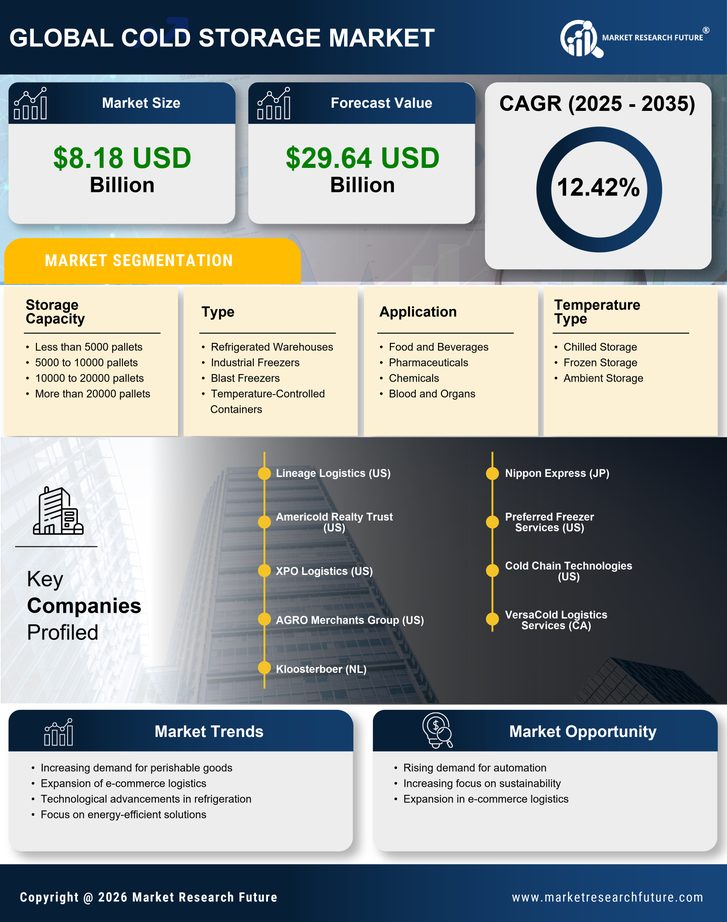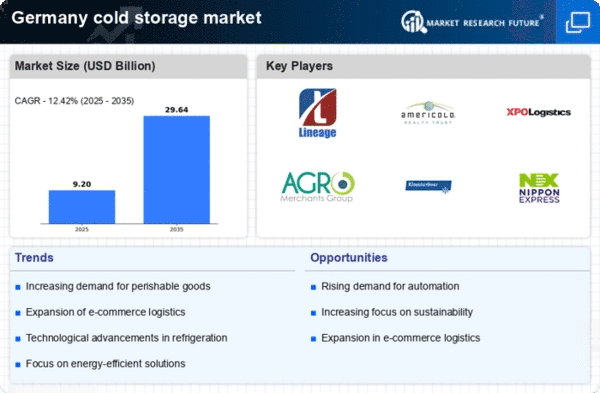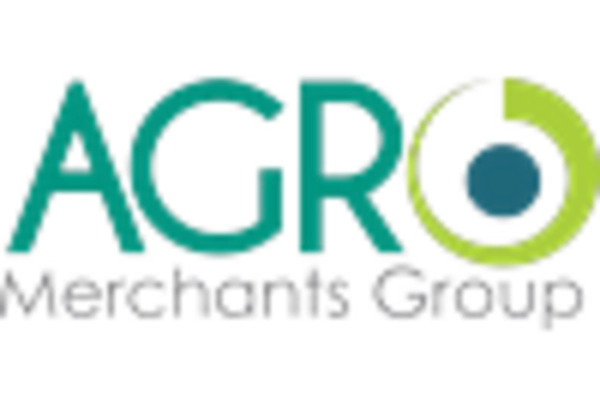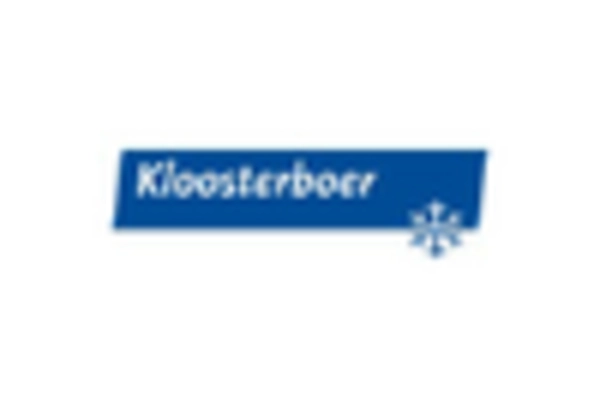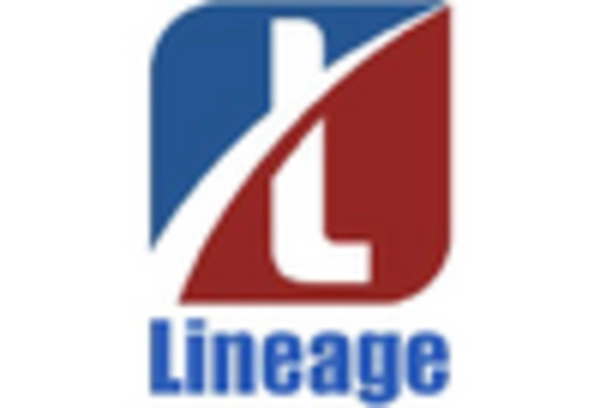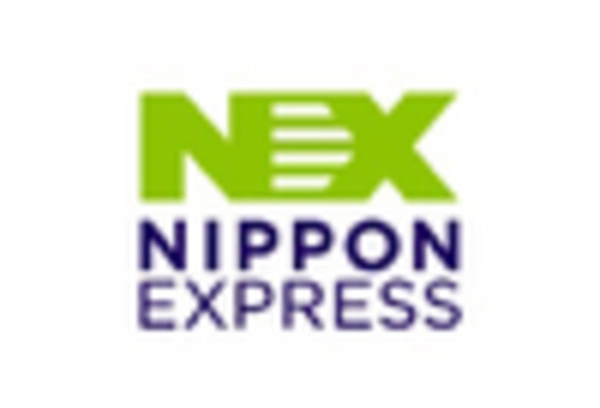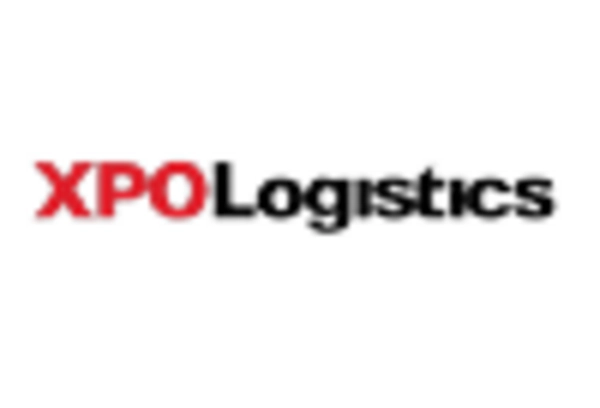Rising Demand for Perishable Goods
The increasing consumption of perishable goods in Germany is a primary driver for the cold storage market. As consumers become more health-conscious, the demand for fresh fruits, vegetables, dairy products, and meat has surged. This trend is reflected in the market data, which indicates that The cold storage market was projected to grow at a CAGR of approximately 6.5% from 2025 to 2030. The need for efficient storage solutions to maintain the quality and safety of these products is paramount. Consequently, businesses are investing in advanced cold storage facilities to meet consumer expectations and regulatory standards. This rising demand for perishable goods is likely to continue influencing the cold storage market, as companies strive to enhance their supply chain efficiency and reduce spoilage rates.
Growth of the Pharmaceutical Sector
The expansion of the pharmaceutical sector in Germany is a significant driver for the cold storage market. With the increasing production and distribution of temperature-sensitive medications and vaccines, the need for specialized cold storage facilities has become more pronounced. The cold storage market is expected to experience growth as pharmaceutical companies invest in compliant storage solutions to ensure the efficacy of their products. Market data suggests that the pharmaceutical cold storage segment is anticipated to grow at a CAGR of around 7% over the next five years. This growth is driven by the rising demand for biologics and the need for stringent temperature control during storage and transportation. As the pharmaceutical sector continues to expand, it will likely have a profound impact on the cold storage market.
Regulatory Compliance and Food Safety
In Germany, stringent regulations regarding food safety and quality are driving the cold storage market. The government has implemented rigorous standards to ensure that food products are stored and transported under optimal conditions. Compliance with these regulations necessitates the use of advanced cold storage solutions, which can maintain specific temperature ranges and humidity levels. The cold storage market is expected to benefit from this regulatory environment, as businesses invest in modern facilities to adhere to safety standards. The market data suggests that companies that prioritize compliance are likely to gain a competitive edge, as consumers increasingly prefer brands that demonstrate a commitment to food safety. This focus on regulatory compliance is a crucial factor shaping the cold storage market in Germany.
Evolving Consumer Preferences and Online Shopping
The shift in consumer preferences towards online shopping is reshaping the cold storage market in Germany. As e-commerce continues to grow, particularly in the food and beverage sector, the demand for efficient cold storage solutions is increasing. Consumers expect fast delivery of fresh products, which necessitates a robust cold chain infrastructure. The cold storage market is likely to benefit from this trend, as businesses adapt their logistics to meet the demands of online shoppers. Market data indicates that the online grocery segment is projected to grow by approximately 15% annually, further driving the need for cold storage facilities. This evolving consumer behavior is a key factor influencing the cold storage market, as companies strive to enhance their delivery capabilities and maintain product quality.
Technological Innovations in Cold Chain Logistics
Technological advancements in cold chain logistics are significantly impacting the cold storage market in Germany. Innovations such as IoT-enabled temperature monitoring systems and automated storage solutions are enhancing operational efficiency and reducing costs. These technologies allow for real-time tracking of temperature-sensitive products, ensuring that they remain within required parameters throughout the supply chain. The cold storage market is projected to see a substantial increase in investment in these technologies, as businesses seek to optimize their logistics operations. Market data indicates that the integration of technology in cold storage facilities can lead to a reduction in energy consumption by up to 20%, further driving the growth of the market. As companies adopt these innovations, the cold storage market is likely to evolve, becoming more efficient and responsive to market demands.
